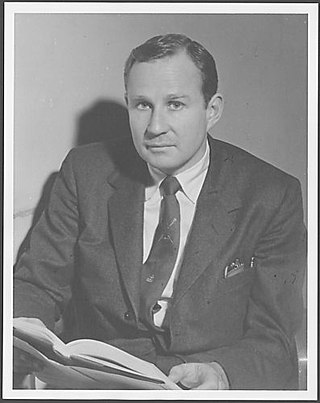Epistemology is the branch of philosophy that examines the nature, origin, and limits of knowledge. Also called theory of knowledge, it explores different types of knowledge, such as propositional knowledge about facts, practical knowledge in the form of skills, and knowledge by acquaintance as a familiarity through experience. Epistemologists study the concepts of belief, truth, and justification to understand the nature of knowledge. To discover how knowledge arises, they investigate sources of justification, such as perception, introspection, memory, reason, and testimony.

Empirical research is research using empirical evidence. It is also a way of gaining knowledge by means of direct and indirect observation or experience. Empiricism values some research more than other kinds. Empirical evidence can be analyzed quantitatively or qualitatively. Quantifying the evidence or making sense of it in qualitative form, a researcher can answer empirical questions, which should be clearly defined and answerable with the evidence collected. Research design varies by field and by the question being investigated. Many researchers combine qualitative and quantitative forms of analysis to better answer questions that cannot be studied in laboratory settings, particularly in the social sciences and in education.

In philosophy, empiricism is an epistemological view which holds that true knowledge or justification comes only or primarily from sensory experience and empirical evidence. It is one of several competing views within epistemology, along with rationalism and skepticism. Empiricists argue that empiricism is a more reliable method of finding the truth than purely using logical reasoning, because humans have cognitive biases and limitations which lead to errors of judgement. Empiricism emphasizes the central role of empirical evidence in the formation of ideas, rather than innate ideas or traditions. Empiricists may argue that traditions arise due to relations of previous sensory experiences.
In philosophy, rationalism is the epistemological view that "regards reason as the chief source and test of knowledge" or “the position that reason has precedence over other ways of acquiring knowledge”, often in contrast to other possible sources of knowledge such as faith, tradition, or sensory experience. More formally, rationalism is defined as a methodology or a theory "in which the criterion of truth is not sensory but intellectual and deductive".
Empirical evidence is evidence obtained through sense experience or experimental procedure. It is of central importance to the sciences and plays a role in various other fields, like epistemology and law.

Wilfrid Stalker Sellars was an American philosopher and prominent developer of critical realism, who "revolutionized both the content and the method of philosophy in the United States".

Critical rationalism is an epistemological philosophy advanced by Karl Popper on the basis that, if a statement cannot be logically deduced, it might nevertheless be possible to logically falsify it. Following Hume, Popper rejected any inductive logic that is ampliative, i.e., any logic that can provide more knowledge than deductive logic. This led Popper to his falsifiability criterion.
Modern philosophy is philosophy developed in the modern era and associated with modernity. It is not a specific doctrine or school, although there are certain assumptions common to much of it, which helps to distinguish it from earlier philosophy.
Laurence BonJour is an American philosopher and Emeritus of Philosophy at the University of Washington.
Philosophy in this sense means how social science integrates with other related scientific disciplines, which implies a rigorous, systematic endeavor to build and organize knowledge relevant to the interaction between individual people and their wider social involvement.
Philosophy is the study of general and fundamental problems concerning matters such as existence, knowledge, values, reason, mind, and language. It is distinguished from other ways of addressing fundamental questions by being critical and generally systematic and by its reliance on rational argument. It involves logical analysis of language and clarification of the meaning of words and concepts.

Originally, fallibilism is the philosophical principle that propositions can be accepted even though they cannot be conclusively proven or justified, or that neither knowledge nor belief is certain. The term was coined in the late nineteenth century by the American philosopher Charles Sanders Peirce, as a response to foundationalism. Theorists, following Austrian-British philosopher Karl Popper, may also refer to fallibilism as the notion that knowledge might turn out to be false. Furthermore, fallibilism is said to imply corrigibilism, the principle that propositions are open to revision. Fallibilism is often juxtaposed with infallibilism.
Verificationism, also known as the verification principle or the verifiability criterion of meaning, is a doctrine in philosophy which asserts that a statement is meaningful only if it is either empirically verifiable or a tautology. Verificationism rejects statements of metaphysics, theology, ethics and aesthetics as meaningless in conveying truth value or factual content, though they may be meaningful in influencing emotions or behavior.
Falsafatuna is a book by Muhammad Baqir al-Sadr, published in 1959, which has been translated into English as Our Philosophy. It is a critique of European philosophy, especially of capitalism and socialism, from an Islamic viewpoint. It was aimed at secular youth in Iraq, and was written in response to the growth of communist ideas.
The analytic–synthetic distinction is a semantic distinction used primarily in philosophy to distinguish between propositions that are of two types: analytic propositions and synthetic propositions. Analytic propositions are true or not true solely by virtue of their meaning, whereas synthetic propositions' truth, if any, derives from how their meaning relates to the world.
The following outline is provided as an overview of and topical guide to epistemology:
Epistemology or theory of knowledge is the branch of philosophy concerned with the nature and scope (limitations) of knowledge. It addresses the questions "What is knowledge?", "How is knowledge acquired?", "What do people know?", "How do we know what we know?", and "Why do we know what we know?". Much of the debate in this field has focused on analyzing the nature of knowledge and how it relates to similar notions such as truth, belief, and justification. It also deals with the means of production of knowledge, as well as skepticism about different knowledge claims.

Philosophy is a systematic study of general and fundamental questions concerning topics like existence, reason, knowledge, value, mind, and language. It is a rational and critical inquiry that reflects on its own methods and assumptions.
Transcendental humanism in philosophy considers humans as simultaneously the originator of meaning, and subject to a larger ultimate truth that exists beyond the human realm (transcendence). The philosophy suggests that the humanistic approach is guided by "accuracy, truth, discovery, and objectivity" that transcends or exists apart from subjectivity.
Jennifer. Nagel is a Canadian philosopher at the University of Toronto. Her research focuses on epistemology, philosophy of mind, and metacognition. She has also written on 17th century (Western) philosophy, especially John Locke and René Descartes.




